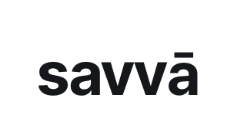Trust Works #4: How Codewave is Raising Consciousness through Self-Management

Is it possible to raise human consciousness through business?
This question sits at the heart of Codewave’s mission—a software development company that has embraced self-management since its inception. Founded in 2013 in Bangalore, India, Codewave has built an organisation of 180+ people where everyone is a creator, empowered by design thinking, autonomy, and a deep commitment to transparency and shared ownership.
Codewave has designed its organisation as a social network, allowing it to thrive without traditional hierarchies while fostering creativity, accountability, and continuous evolution.
The Pillars of Codewave’s Culture
Codewave operates on five foundational values that guide decision-making and collaboration:
- Self-Management (BYOB – Be Your Own Boss)
- Transparency (No Secrets)
- Empathy (See from the other’s perspective)
- Teamplay (Team is always > than 1)
- Authenticity (It’s **** hard to fake it)
These principles aren’t just statements—they are deeply embedded in Codewave’s operational model, shaping everything from project selection to compensation structures.
Codewave’s Self-Management Toolkit
Unlike traditional companies with rigid hierarchies, Codewave is structured as a social network, where individuals take responsibility for their work and decisions.
Key elements of their approach include:
- No Traditional Bosses – Decision-making is decentralized.
- BYOB (Be Your Own Boss) Framework – Team members choose their own projects and collaborators.
- Social Contracts – Agreements between peers to ensure accountability and alignment.
These mechanisms create an environment where individuals are empowered to take ownership, fostering both personal and organizational growth.
Boundaries for Action
To balance autonomy with alignment, Codewave has established clear decision-making boundaries. Teams have the authority to:
- Nominate peers for promotions.
- Mine customer accounts for additional value creation.
- Accept, reject, or negotiate customer change requests.
- Choose technologies from an approved pool or add new frameworks.
- Add or remove team members.
- Decide where and how they work, including time zones and work arrangements.
This approach ensures that while individuals have the freedom to act, decisions remain aligned with the company’s broader mission and strategy.
Peer-to-Peer Feedback
Codewave has institutionalised continuous feedback through Peerly, an internal practice evaluating team members across five performance parameters:
- Dependability
- Competence
- Self-Management
- Teamplay
- Impact
These assessments are not just about performance but also about personal and professional development, helping individuals grow within the organization.
Peerly Panels
All initiatives concerning Codewave’s internal organisation are led by Peerly Panels—volunteer-driven groups that make decisions based on six success criteria:
- Revenue
- Profitability
- Self-Management
- Customer Net Promoter Score (cNPS)
- Employee Net Promoter Score (eNPS)
- Thought Leadership
This participatory decision-making model ensures that Codewave evolves dynamically, with every team member having a voice in shaping its future.
Aligned Interests
Codewave has designed an innovative compensation structure that aligns individual incentives with organizational success.
- Self-Assessments & Peerly Reviews – Base salary changes are reviewed and adjusted collectively by a pearly panel
- Profit Sharing on the Go – Each project contributes profits to two shared pools:
- Project Kitty – Divided equally among project team members at the end of the month.
- Company Kitty – Distributed among the entire team based on overall performance.
This ensures financial transparency and motivates teams to contribute to both individual projects and the company’s broader success.
Results: A Thriving, Self-Sustaining Ecosystem
The impact of Codewave’s unique organisational design is evident:
- Negligible Attrition Rates – Employees deeply love the culture and stay for the long term.
- High Customer Satisfaction – Clients benefit from a team that is deeply engaged and empowered.
- Self-Sustaining Growth – Team members launch new branches of the company on their own initiative.
- New Ventures – Two new MVPs launching in 2024:
- Glue – A tool encapsulating Codewave’s self-management culture to help other organizations thrive.
- Storymetrics – AI-powered insights making data accessible and fostering innovation.
And here is a testament from one of their clients as well:
"There is genuine ownership, and it feels more like a partnership than a client-customer relationship." - Sonali, Founder & CEO at Haplocare
Lessons from Codewave
Codewave is one of my favourite self-managed organisations and for good reason Their journey demonstrates that:
- Trust and Transparency Create Ownership – When people have visibility into decisions, they take greater responsibility.
- Boundaries Enable Autonomy – Freedom works best within the guardrails of a framework we design together.
- Peer-Led Growth Fosters Innovation – When growth is driven by peers rather than bosses, organisations become more resilient and adaptive.
- Profit Sharing Aligns Incentives – Financial transparency and equitable rewards drive engagement and performance.
By embracing these principles, Codewave has not only built a thriving business but also raised human consciousness in the workplace—proving that work can be a meaningful part of our lives.

Member discussion